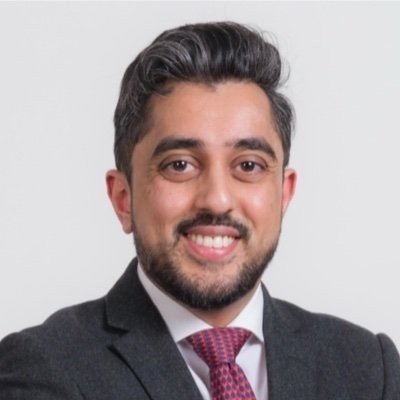
Balancing values with realpolitik: LGBT+ rights in international affairs
Rishi Patel
Secretary of the Labour Foreign Policy Group. He is on Labour’s Future parliamentary candidates programme. He works as a Senior Adviser at
a communications and policy advisory for change-makers.
Sometimes I wonder what my life would have been like if my family hadn’t left Uganda after Idi Amin’s expulsion of Indians in 1972.
My parents and grandparents spoke fondly of their time living in the former British protectorate – the balmy weather, trips to Lake Victoria, a fusion of Indian-East African cuisine with cassava and plantain. The language we speak at home is a reminder of that time – the words I use for ‘pillow’ and ‘iron’ are Swahili, very different from the Gujarati I learnt at Saturday school. For many years we spoke about going back on a family trip so I could better understand the roots of my ancestry.
But when I decided to be more open about my sexuality in my mid-twenties, I realised I was unlikely to make the trip any time soon. Indeed, the Ugandan government passed a law this year introducing the death penalty for being gay. In response, the World Bank took the decision to quit Uganda, halting new loans in protest at the anti-LGBT legislation, which starkly contradicts the Bank’s values. It’s a decision which poses significant questions for Western nations, and specifically for future leaders of the West; how do we navigate the intricate balance between ensuring our security and prosperity while upholding our core values in foreign policy?
While recent government actions on international development have cast a shadow over our global leadership, we can still take pride in our strong record on human rights. We have strong values, and our commitment to respecting LGBT+ rights is a core part of this. These should not be shunned in dialogues with international partners. Equally, there is need for sensitivity towards the norms and practices of partner countries who have different cultural values, but still require our support in areas like overseas development assistance, or are important strategic partners to our security and prosperity.
Colonialism casts a long shadow where we need to be mindful that in many countries, anti-LGBT+ laws are part of the ongoing legacy of the British Empire. The Ugandan government viewed the World Bank’s intervention as hypocritical and paternalistic. Conversations with friends and family residing in socially conservative countries in the Global South or Arab World often reveal their perception of this type of advocacy as a modern-day colonialism – the imposition of our values on theirs. I have also heard from senior former diplomats and civil servants that we are losing influence to traditional geopolitical partners in Asia and Africa to China and Russia, in part because we seek to promote LGBT+ rights at multilateral institutions like the UN.
And cack-handed interventions aren’t always welcomed by local LGBT+ activists, either. The LGBT+ rights activist Peter Tatchell’s one-man protest during the 2022 World Cup in Qatar drew widespread press attention, but some Qatari LGBT+ rights activists were critical of his actions, which they said risked a backlash from state authorities. In international diplomacy, I am learning that pragmatism often dances awkwardly with idealism.
The realpolitik is that, in the medium term, we are going to have a situation where we build more partnerships with countries in the Global South who have challenging human rights records. We need to decide how to balance that reality with our own deeply-held values. And to put it crudely, when people in the Global South are fleeing conflict, dying from famine or suffering natural disaster, it would be counter-productive, not to say callous, to refuse to help. Indeed, when I visited the Za’atari refugee camp in Jordan with the Coalition for Global Prosperity, I did not feel that the displaced children there whose education and livelihoods are being supported by UK ODA money should be denied support because of socially conservative values prevalent in the Arab world.
We have to be honest that we are doing this in opposition to Russia and China, whose values are very different to our own. This July, Russia passed their latest law targeting the LGBT+ community, banning trans people from transitioning and thus effectively criminalising their existence. Putin’s rhetoric even casts the Ukraine conflict as being about protecting so-called family values. In Putin’s War on the West, LGBT+ people are on the frontline.
A solution, to my mind, lies in sustaining our efforts to support local LGBT+ rights organisations in countries where progress is slow, and encouraging businesses and governments to recognise the long-term economic and social benefits of LGBT+ inclusion. Britain still has considerable soft power around the world, and we should leverage it, sensitively but sustainedly, in the support of LGBT+ rights everywhere. We also need to know where our line is, and be prepared to take a tougher line when necessary. Uganda’s anti-gay laws are reprehensible, and the situation for LGBT+ Ugandans is nothing short of a tragedy. That’s why I believe that until the legislation is repealed, the World Bank is right to quit Uganda.
My family left Uganda in 1972, so I grew up in a country where, more or less, it is safe for me to be who I am. No amount of pragmatism should blind us to the reality that, for many LGBT+ people around the world, life is not safe.

